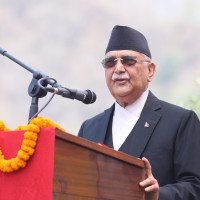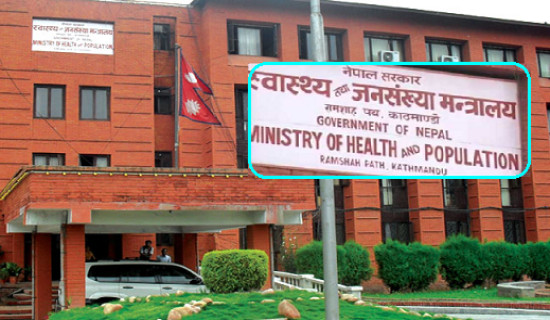- Friday, 18 April 2025
Does Religion Help Curb Corruption?
Is there a connection between religion and corruption? Does religion teach us to become less corrupt? It has been argued that “children, if shown a different model, may grow up with inner clarity that resists corruption not out of fear, but from principle”. Can religion teach such principles right from the early years of our lives? Is there any evidence showing that religious officials stand high in integrity?
At a time when corruption has become deadly for national development, there is a need to search the roots of corrupt behaviour. Reports of the constitutional bodies, regulatory agencies, Transparency International and daily newspapers show that cases of corruption and malpractices are widespread. They range from public policy to petty cash. These cases expose the reality that resources devoted to development are diverted elsewhere for private gain. This makes it clear that if we are truly committed to national advancement, malpractices must be prevented and controlled. Understanding corrupt human behaviours and its determinants is required to overcome corruption. This article is an attempt to discuss the relationship between religion and corruption.
Religious tenets
Nepali society is considered to be highly religious. Many temples, year-round worshipping Kul and Pittri puja, and other religious ceremonies are testimonies to this. The basic tenets of religion are to cultivate fairness, righteousness and good conduct among the practitioners. It can be argued that if religion had been followed strictly, bad conduct such as corruption would not have existed at all. It should be noted here that most of the Nepali public officials are the children of priests and pundits. However, cases of corruption are increasing.
This situation can be termed as “religious but keen to corrupt”. In his recent research, an Indonesian journalist raised a timely question: Why does corruption remain widespread in a nation so openly religious? His assumption is usual: religion guarantees morality or good behaviour. However, Indonesia faces a paradox here: while the country ranks high in religiosity but low in clean governance. He has noted that “places of worship are crowded; prayer groups flourish. Yet, corruption remains a daily reality. So, if religion is not to blame, what is missing? What is missing is not belief, but a moral compass shaped early before habits and shortcuts take over, what many now call mindset, system 1 thinking, muscle memory or mental models.”
He argues that religion was inadequate to create ethical human beings because religion was only a response to fear. He has noted that faced with death, disease and natural disasters, early humans created rituals to reduce anxiety and restore order as well as discipline. This was the basis of religion, which is now not adequate to ensure ethical behaviors of public officials. Today’s religious practices, prayers, fasting, sacred artifacts, annual festivals and Kul Pujas still serve psychological and social needs such as belonging and identity.
However, these rituals do not always shape our good conduct from our inner soul. One can fear God yet cheat the system and abuse office power. But without inner conviction, it does not restrain bad conduct. Psychologists assume that people grow from a basic fear of punishment to principled reasoning if trained well. But most never reach the higher stages of principled conduct. Many obey rules to avoid shame or to be accepted by others, not out of justice or compassion. In this situation, corruption thrives, not because people lack belief, but because belief stays stuck at the surface level just for show.
Higher stages of human consciousness demand questioning unjust laws, defending moral principles and requiring independent thought. All this requires courage and a supportive environment. How can such higher consciousness principles be cultivated in public officials? It is a fact that these do not grow in coercive environments. They must be deliberately taught, patiently, early and repeatedly. Generally, moral behaviour involves four levels: recognising the ethical issue, knowing what is right, having the willingness to do it and having the strength to follow the right. Religion teaches to reach up to the second stage but is unable to cultivate the willingness and ability to follow the right conduct.
This is the gap between knowledge and practice in Nepal and many other religious societies around the globe. Many public officials know that corruption is a bad thing and even teach this to others, but they fail to translate this into their own actions. Their religious orientation helps them to follow rituals but not integrity. Double standards are followed in the absence of strong moral grounding. Religion is just like school-level education; on its foundation can grow the deliberative, long and slow formation of ethical character like the university-level education. This is the investment for a non-corrupt country.
Multidimensional approach
A multi-actor and multidimensional approach is needed for the creation of ethical character from childhood. Ethics must be seeded before the ego and cooperation before competition. Family, schools and communities should act as role models for inculcating ethical values in the inner core of the children. This should manifest in school teaching, family conversations, in what adult model and in what society celebrates. Children quickly imitate the virtues.
To conclude, corruption has become a destroyer of national development. Controlling corruption demands an understanding of the determinants of corrupt behaviors. Religious values are usually considered to be useful in developing non-corrupt behaviors. However, this connection is rather weak in both Nepal and Indonesia. Both countries are deeply religious but highly corrupt. Religion is necessary but not sufficient to overcome bad governance. What is truly needed is the development of ethically principled citizens from their very early years.
(Dr. Bhusal is a development analyst.)





-(1)-(1)-square-thumb.jpg)











